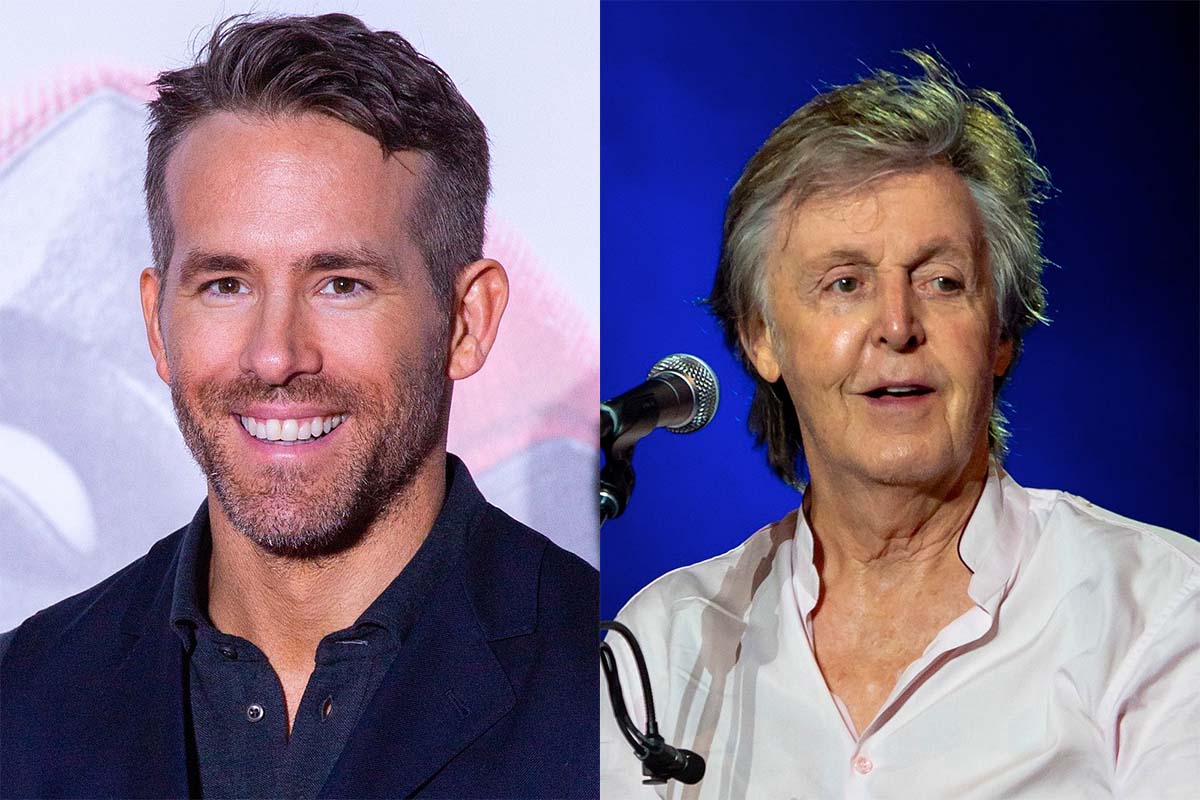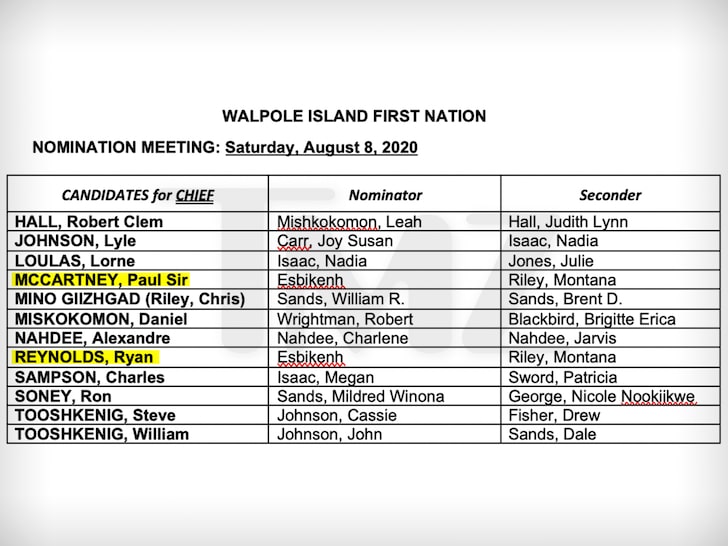
- Details
- By Native News Online Staff
WALPOLE ISLAND — A First Nation with about 5,000 band members is seeking to remove the names of Canadian actor Ryan Reynolds and legendary ex-Beatle Paul McCartney from its slate of candidates for chief after community members nominated the two.
Walpole Island First Nation in southwestern Ontario can elect non-Indigenous people as leaders under the Indian Act, James Jenkins, Walpole Island’s director of operations, told CBC News.
 Walpole Island First Nation tribal office - Courtesy photo
Walpole Island First Nation tribal office - Courtesy photo
The two celebrities have no known ties to Walpole Island, and had their names placed on the ballot for the First Nation’s Sept. 19 election. Community officials have reportedly reached out to both but have not heard back. Including the two celebrities, there are 12 nominations for chief.
 Walpole Island First Nation election ballot as of Wednesday, Aug. 12
Walpole Island First Nation election ballot as of Wednesday, Aug. 12
Seeking guidance on how the situation should be handled, Jenkins reached out to Indigenous Services Canada. After consultation, it was decided if the two celebrities have not responded by 4 p.m. on Thursday, Aug. 13, their names will be removed from the ballot.
The current incumbent, Chief Dan Miskokowmon, is running for reelection. He is seeking his third consecutive two-year term. Miskokowmon served as chief during the 1990s and early 2000s.
More Stories Like This
Native News Weekly (August 25, 2024): D.C. BriefsNavajo Nation Mourns the Passing of Former Vice President Rex Lee Jim
Deb Haaland Earns Endorsement From Communications Workers of America Local 7076
University Soccer Standout Leads by Example
Two Native Americans Named to Democratic Congressional Campaign Committee's“Red to Blue” Program
Help us defend tribal sovereignty.
At Native News Online, our mission is rooted in telling the stories that strengthen sovereignty and uplift Indigenous voices — not just at year’s end, but every single day.
Because of your generosity last year, we were able to keep our reporters on the ground in tribal communities, at national gatherings and in the halls of Congress — covering the issues that matter most to Indian Country: sovereignty, culture, education, health and economic opportunity.
That support sustained us through a tough year in 2025. Now, as we look to the year ahead, we need your help right now to ensure warrior journalism remains strong — reporting that defends tribal sovereignty, amplifies Native truth, and holds power accountable.
 The stakes couldn't be higher. Your support keeps Native voices heard, Native stories told and Native sovereignty defended.
The stakes couldn't be higher. Your support keeps Native voices heard, Native stories told and Native sovereignty defended.
Stand with Warrior Journalism today.
Levi Rickert (Potawatomi), Editor & Publisher

